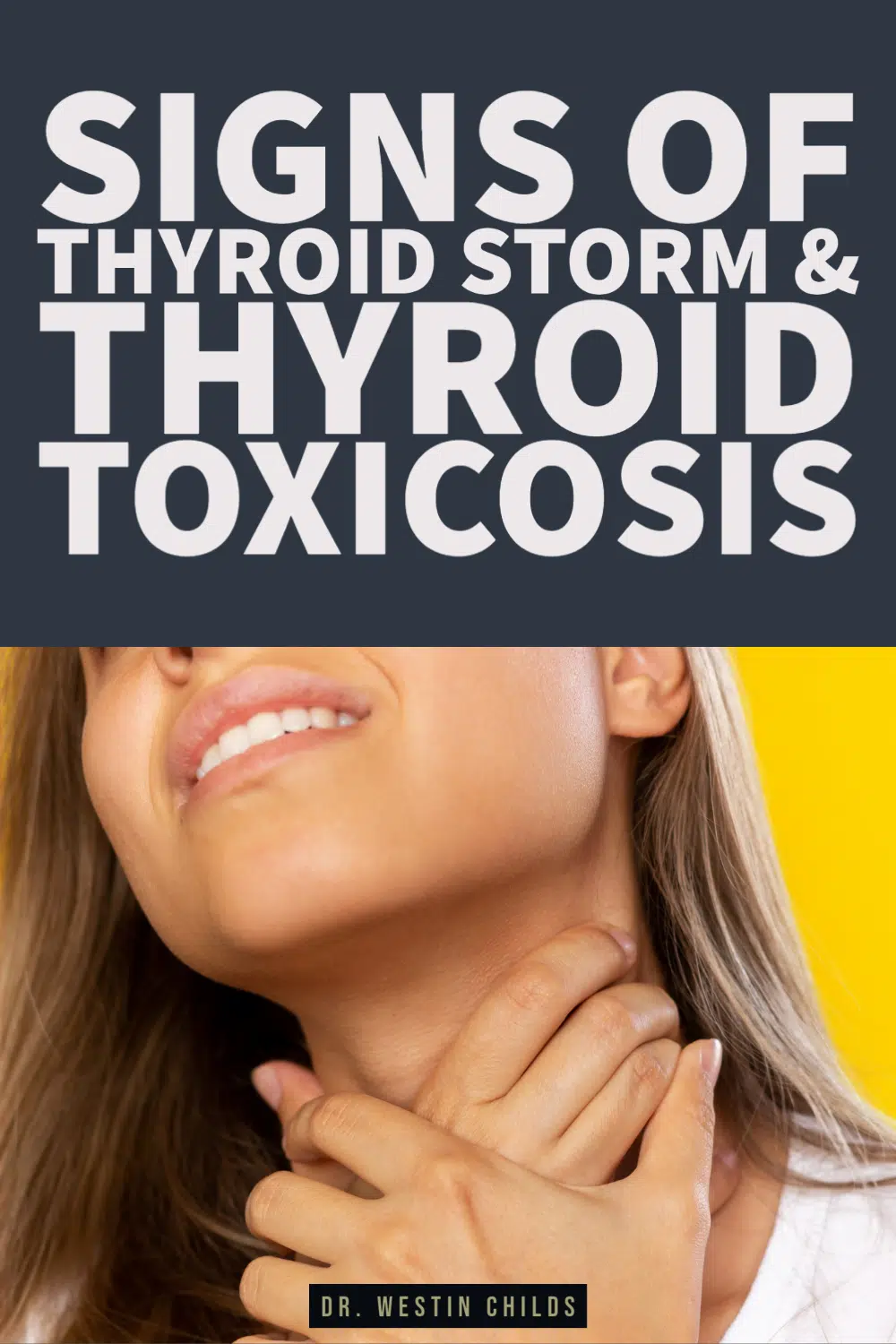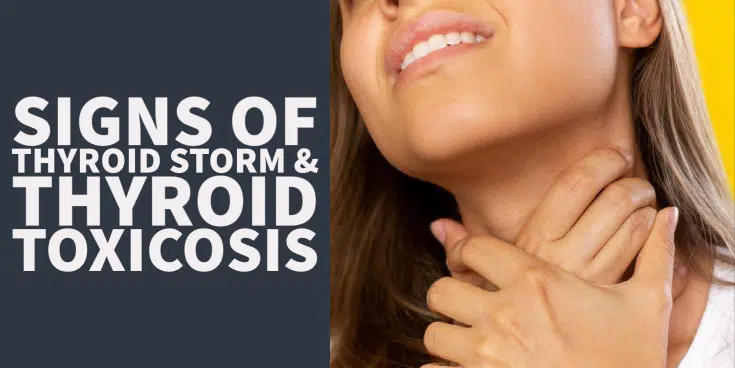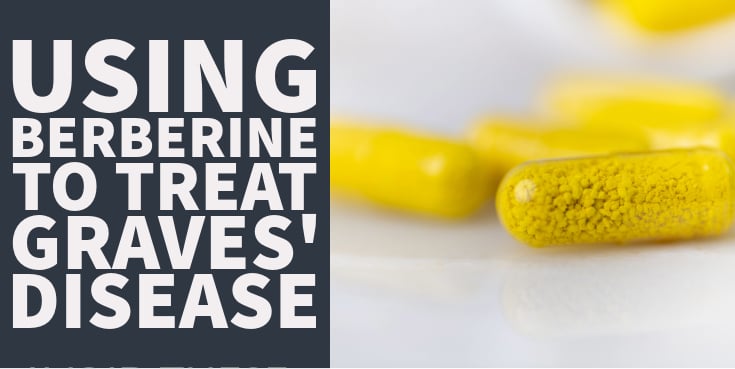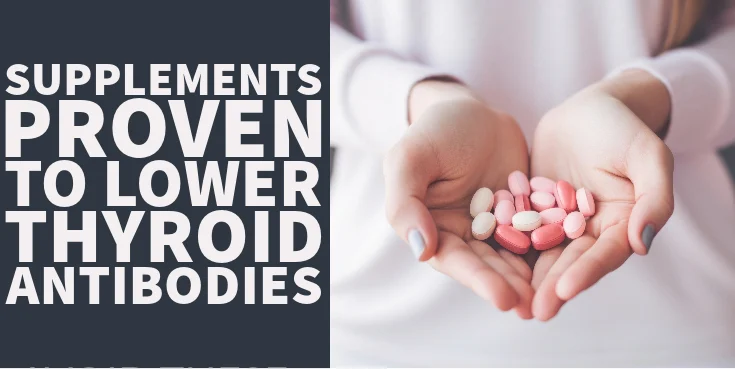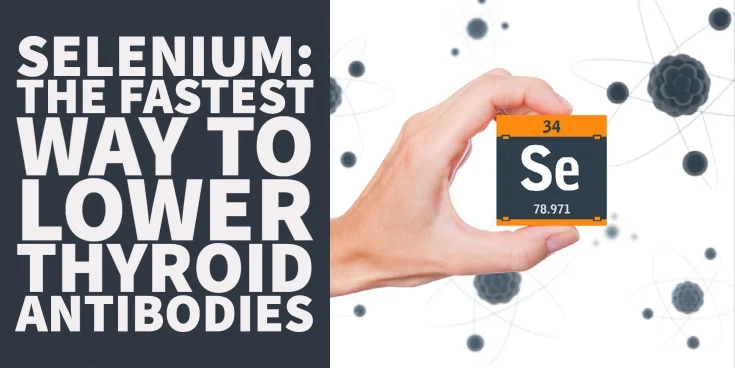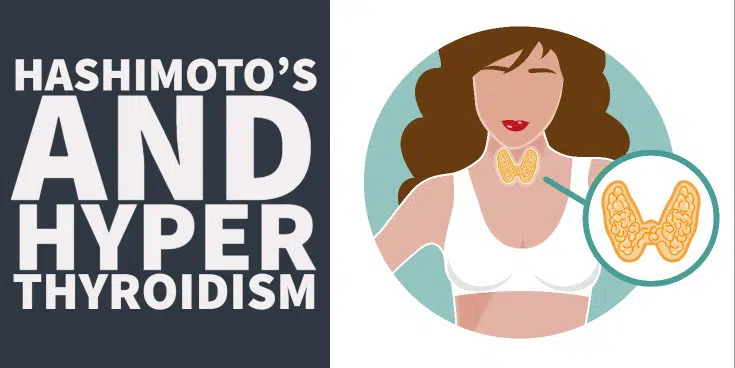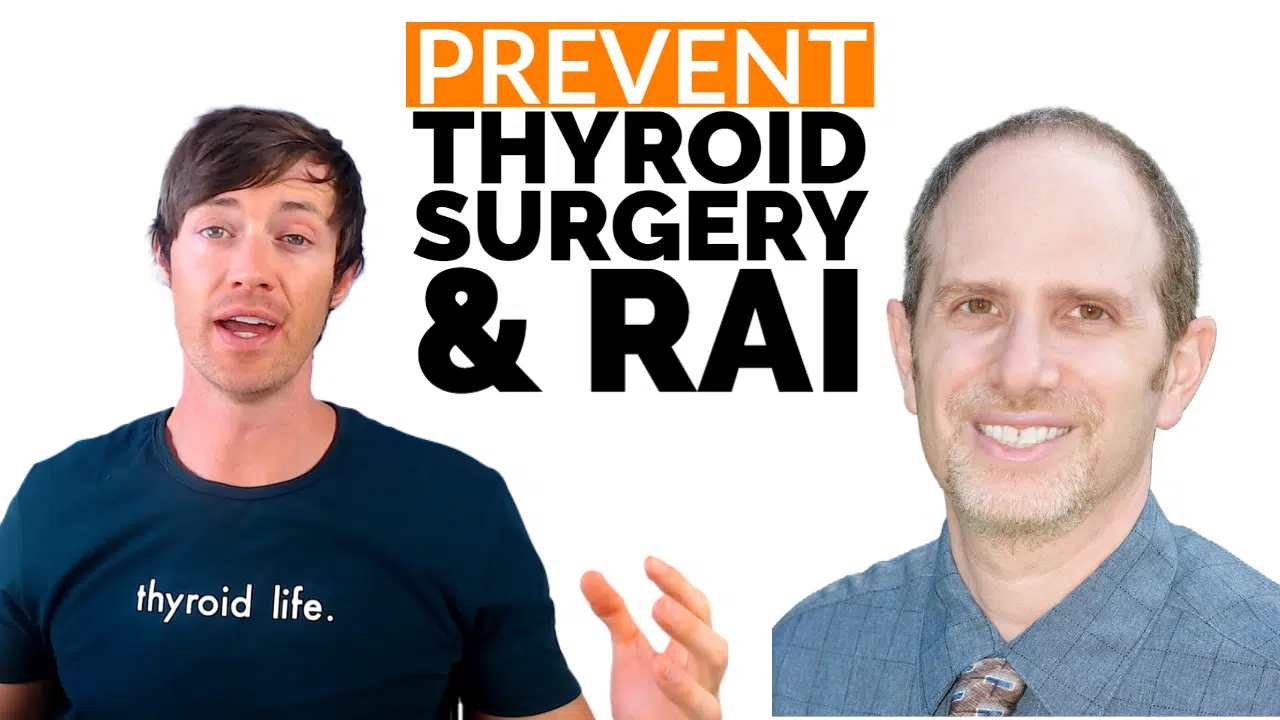What exactly is thyroid storm?
How dangerous is this condition and how will you know if you have it?
This post will concentrate on this medical condition and teach you everything you need to know about it.
Including the difference between regular hyperthyroidism and thyroid storm, the difference in symptoms, how to prevent it from happening, and more:
What is the Difference Between Thyrotoxicosis and Thyroid Storm?
It’s important to distinguish between the two conditions known as thyrotoxicosis and thyroid storm.
Many people believe they are in a “thyroid storm” when in reality they are suffering from the symptoms of hyperthyroidism, too much thyroid hormone in their body, or thyrotoxicosis.
Thyroid storm, on the other hand, is a very serious medical emergency that requires immediate treatment or the result may be death.
It helps to think about hyperthyroidism on a spectrum.
On one side of the spectrum, you have a mild amount of excess thyroid hormone which leads to symptoms such as weight loss, diarrhea, and heart palpitations.
On the complete opposite side, you have the condition known as thyroid storm which may ultimately lead to serious conditions such as liver failure, heart failure, and even death. (1)
So while these two conditions (thyrotoxicosis and thyroid storm) may be caused by the same condition they represent different intensities of the same disease.
The good news is that it’s not likely that you are going to “miss” the symptoms associated with a thyroid storm.
Most people who experience these symptoms will either be taken straight to the emergency department or to their doctor which usually leads to rapid diagnosis.
Even when taken to the hospital, though, mortality rates associated with thyroid storm can be as high as 10-20%. (2)
This means that even with treatment, up to 10-20% of people who have thyroid storm may still die as a result of their condition.
Because of this high mortality rate early diagnosis is key to preventing death and serious complications of this disease.
Some causes of thyroid storm result from untreated thyroid conditions such as Graves’ disease but can be the result of any cause of hyperthyroidism (remember that many different conditions can cause hyperthyroidism!).
These conditions are important to discuss because they may slowly progress, over a period of weeks to months, to thyroid storm if they are not treated or addressed or if they are ignored.
Some patients, perhaps unknowingly, may put themselves at increased risk for thyroid storm as they pursue natural therapies for hyperthyroidism.
Other causes of thyroid storm occur very rapidly, which means you can’t predict that they will happen.
DOWNLOAD FREE RESOURCES
Foods to Avoid if you Have Thyroid Problems:
I’ve found that these 10 foods cause the most problems for thyroid patients. Learn which foods you should avoid if you have thyroid disease of any type.
The Complete List of Thyroid Lab tests:
The list includes optimal ranges, normal ranges, and the complete list of tests you need to diagnose and manage thyroid disease correctly!
Symptoms Associated with Thyroid Storm
How do you know when you progress from thyrotoxicosis to thyroid storm?
Are there certain symptoms associated with thyroid storm which can help you determine if you need to go to the hospital?
The short answer is yes.
As you might suspect, the symptoms of thyroid storm tend to mimic those associated with hyperthyroidism but tend to be on the extreme side of the spectrum.
Thyroid storm can be diagnosed with a combination of your clinical appearance and your lab work.
Symptoms commonly associated with thyroid storm include:
- Fever (or thermoregulatory dysfunction)
- Rapid heart rate (tachycardia)
- Rapid development of heart conditions such as heart failure, heart attack, or atrial fibrillation
- Swelling or edema of the extremities
- Neurological dysfunction ranging from agitation to seizures or coma
- Gastrointestinal issues ranging from diarrhea to jaundice or liver failure
You are given points based on the severity of the symptoms listed above. (3)
If your “score” is a high enough score with all of your points (meaning that your symptoms are severe) then you may be treated for thyroid storm.
Mild symptoms, such as a slightly elevated heart rate, a slightly elevated body temperature, and the absence of organ damage may simply represent a hyperthyroid state and not thyroid storm.
Even if you aren’t sure if your symptoms “classify” as thyroid storm you should still be evaluated by your doctor if you notice that your symptoms are worsening.
Lab Testing
Lab testing can also help to identify the presence of this condition.
Testing should focus on evaluating thyroid function with the use of free thyroid hormones, especially free T3 and free T4 (in addition to TSH).
Thyroid lab testing, during a thyroid storm, will show an extreme elevation in free T3 and a very low TSH.
These are all indicators that the amount of thyroid hormone that your body is producing is excessive for what it needs and that it is not “obeying” the normal feedback and regulatory loops in place.
If end-organ damage is suspected then assessing for these conditions is also helpful.
This can be done with routine tests such as liver function testing, pancreatic testing, cardiac enzyme testing, and so on.
If positive, these tests may indicate organ and tissue damage which may require treatment above and beyond blocking thyroid function (more on that below).
What Causes Thyroid Storm?
Thyroid storm occurs when your organs and tissues are exposed to a critical mass of thyroid hormone.
Thyroid hormone acts to increase the amount of energy that your tissues burn by increasing oxygen consumption.
As T3 and T4 levels continually rise inside your tissues, these tissues continually work harder and harder.
Once the levels reach a critical point your tissues begin to die due to overexertion and that’s when many of the symptoms of thyroid storm kick in.
Your body and cells have the ability to tolerate some amount of excess thyroid hormone, but once the tissues start to die then the problems begin.

But what causes thyroid storm to begin?
Most of the time this condition is the result of undertreated or untreated Graves’ disease.
Remember:
Graves’ disease and hyperthyroidism are both caused by excess thyroid hormone in the body.
The treatment for these conditions is to slow down the production of thyroid hormone.
If you fail to do this, or you don’t do it adequately with therapies and medications, then your risk of developing a thyroid storm increases over time.
Any condition that causes hyperthyroidism can result in thyroid storm, but it appears to be the most common in Graves’.
Thyroid storm can also happen abruptly in patients who have hyperthyroidism when they also are dealing with some other acute medical condition. (4)
So if you have hyperthyroidism AND you have a heart attack (5), go into DKA (6), become pregnant (7), or experience massive trauma (8), then these conditions may “trigger” the transition from hyperthyroidism into thyroid storm.
Many of these conditions can’t be predicted, so you must be on high alert if you have hyperthyroidism and start to experience a worsening of your symptoms, especially if you also have another medical condition.
Treatment
Thyroid storm is a life-threatening medical emergency which means that if you have this condition you will require emergent medical attention.
A medical emergency is defined as any condition which may result in the death of the patient if not treated and diagnosed rapidly.
Other conditions that fit into the “medical emergency” category include heart attack and stroke.
This means that treatment is incredibly important and must be initiated shortly after diagnosis!
As you might suspect, the treatments for thyroid storm include those same treatments used for hyperthyroidism but in higher dosages.
The goal, when treating thyroid storm, is to address the excessively high levels of thyroid hormone in the body. (9)
This is accomplished by blocking the release of thyroid hormone from the thyroid gland, removing thyroid hormone from the bloodstream, and by preventing thyroid hormone from “activating” your cells.
All of these therapies are designed to help prevent further damage to your body.
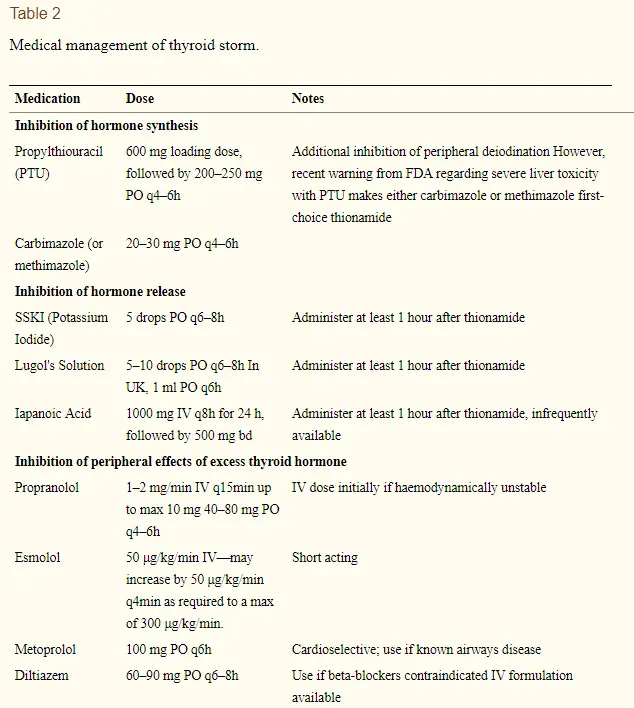
Medications used to treat thyroid storm fit into the 5 “Bs”
- Block Synthesis (Use antithyroid drugs such as Methimazole or PTU which prevent your body from making more thyroid hormone).
- Block release (Using high doses of iodine can prevent your thyroid gland from releasing more thyroid hormone through the Wolff-Chaikoff effect).
- Block T4 to T3 conversion (By using high doses of steroids or PTU. These medications prevent your body from “activating” thyroid hormone).
- Beta-blockers (10) (Beta blockers are medications that can slow down the cellular effects of thyroid hormone and reduce heart rate and tremors).
- Block gastrointestinal circulation (Using binders such as cholestyramine prevent your own body from activating and reabsorbing thyroid hormone).
If you have a thyroid storm then you may be placed on several medications all at once, depending on the severity of your disease, and placed in an intensive care unit for frequent monitoring.
You can compare this treatment paradigm to hyperthyroidism which frequently only requires one medication such as methimazole. (11)
Other treatments may include supportive measures such as managing your body temperature and providing IV fluids, the replacement of electrolytes, and providing care to damaged organs.
Even with all of these therapies sometimes it’s not enough to block thyroid function.
In rare cases, a treatment known as plasmapheresis may be required. (12)
This treatment helps “clean” up your blood by taking the thyroid hormone out of your bloodstream.
This condition must be repeated several times if it is used.
Prognosis & Outcome
Prognosis refers to what kind of outlook you can expect after a disease.
While thyroid storm is a medical emergency and associated with up to 10-20% mortality, most people, if they seek medical attention quickly, should not experience long-term negative consequences of the disease.
It should never be ignored, however, that up to 10-20% of people who have this condition may die as a result.
With chances as high as these it’s best to practice prevention so you don’t have to worry about putting yourself in that type of condition.
How do you Prevent Thyroid Storm?
The best way to prevent this disease is by taking care of and managing your hyperthyroidism or Graves’ disease. (13)
That means taking your medication, eating healthy, taking supplements (if necessary), and monitoring your thyroid lab tests frequently.
If you do this you will be able to ensure that you are properly medicated and treated.
While you can’t necessarily predict that you will have a heart attack or some other precipitating cause of a thyroid storm, you can still do a lot to potentially reduce the likelihood of these diseases by leading a healthy lifestyle.
Managing your stress, exercising, and eating healthy are all ways to reduce the chance that you’ll have a serious medical condition.
Conclusion
Thyroid storm is a serious medical condition that requires immediate attention and medical care.
The sooner you get treatment the better because you may be able to reduce the amount of damage that occurs in your body.
This condition is usually triggered by an existing hyperthyroid condition which becomes exaggerated either due to under-treatment or to some other secondary medical condition.
The best “treatment” for this condition is to prevent it from occurring!
You can do this by monitoring your thyroid function, if you have hyperthyroidism, and by getting frequent lab tests.
Now I want to hear from you:
Are you concerned that you may have the symptoms of a thyroid storm?
Do you also have hyperthyroidism?
Are you being treated adequately?
Why or why not?
Leave your comments or questions below!
